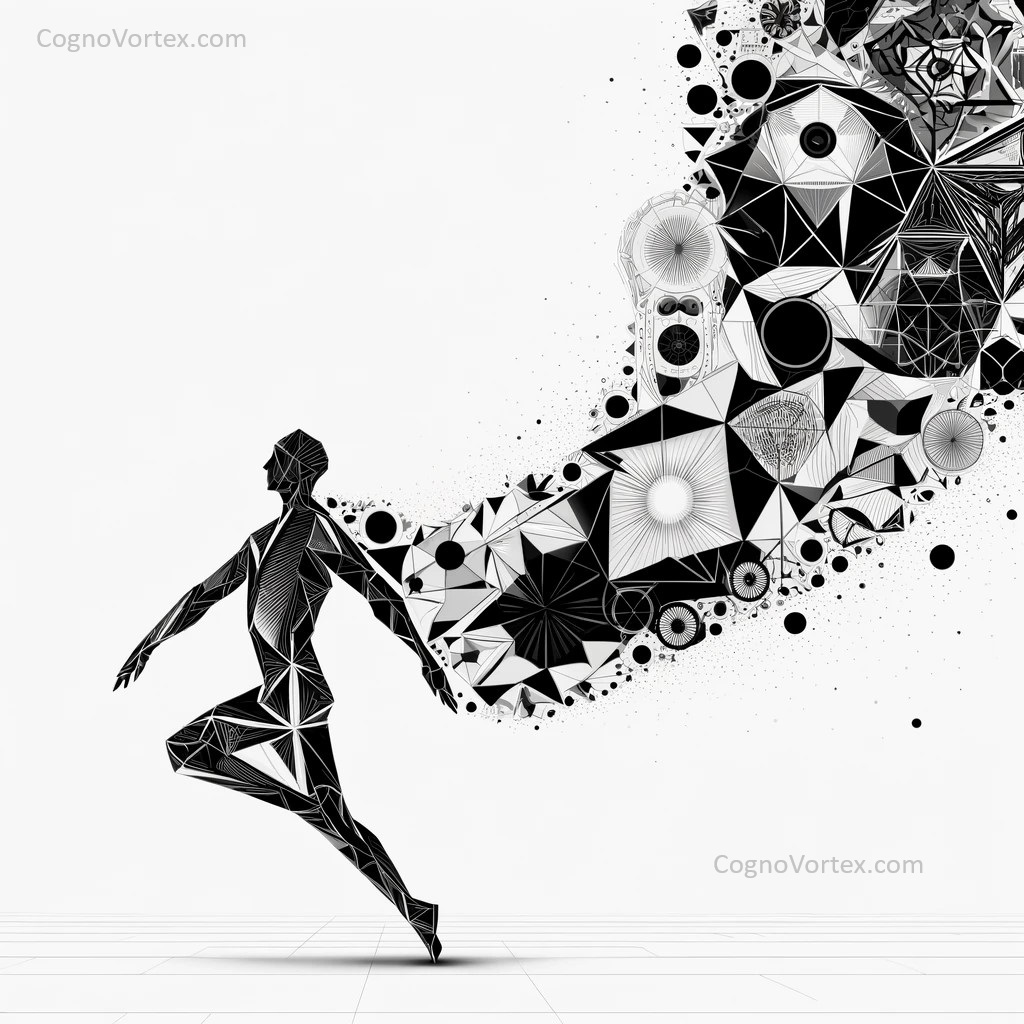In Difference and Repetition, Gilles Deleuze presents a radical departure from traditional Western philosophy by tackling two central, overlooked forces in philosophy—difference and repetition. Traditionally, metaphysics focuses on identity, unity, and representation; things are understood primarily in relation to how they mirror or repeat an ideal, static model. Deleuze, however, argues that this model misleads us by pushing difference and repetition to the margins when, in fact, these are essential forces driving reality itself. This shift redefines how we understand identity, reality, and knowledge, not as matters of static being, but as continuous processes of becoming.
The Primacy of Difference Over Identity
For Deleuze, difference is not secondary to identity but primary—an initiating force that produces variations in the world without referring back to any fixed or pre-existing ideal. Where traditional philosophy might see difference as the variation between identifiable entities (like the difference between two identical chairs), Deleuze sees it as a productive force that constantly generates new forms, novel structures, and unforeseen becomings. In other words, he doesn’t define difference by what it “is not” or in contrast to an original. Instead, he views it as an intrinsic process, unfolding newness from within the fabric of experience itself.
Deleuze illustrates his point with the concept of the “virtual.” The virtual, for him, is not something unreal or merely possible; it is the source of all potential reality, containing real forces that are not yet actualized. The actual, conversely, is what is manifest, realized from the virtual. Difference, then, occurs in the movement from the virtual to the actual, where new identities emerge through continuous differentiation. Thus, identity is no longer a stable reference but a temporary outcome of underlying differential processes.
Repetition as Creative Variation
If difference fuels novelty, repetition, in Deleuze’s view, is not mere recurrence or simple reproduction. Unlike the repetition that recycles the same forms over time, Deleuze’s repetition is a creative force, intensifying difference. Each act of repetition introduces a variation, an alteration that deepens the distinctions already present. Repetition, for Deleuze, does not flatten distinctions but enhances them by bringing out nuanced differences that might otherwise go unnoticed.
Through the lens of psychoanalysis, Deleuze explores this idea by revisiting Freud’s concepts of habit and compulsion. Habit, for instance, does not reproduce an identical effect each time it occurs. Instead, it amplifies differences and generates intensities, emotions, and unacknowledged responses. Repetition becomes a means of differentiation and transformation. In this way, rather than producing sameness, repetition in Deleuze’s philosophy serves as a disruptive mechanism that propels thought and being into new dimensions.
The Thought of the Unthought: Thinking Without Identity
Deleuze’s Difference and Repetition insists on a new model for thought itself: an “image of thought” that is not rooted in identity or the representational logic of the same. Traditionally, thought has been regarded as a recognition of forms, representations, or abstract ideals. In contrast, Deleuze envisions thought as a force capable of engaging with difference directly—thinking not through pre-established categories, but as an act of experimentation and discovery. This reorients the purpose of philosophy from a search for timeless truths to an exploration of dynamic processes that lie outside conceptual comfort zones.
In this new model, Deleuze’s “unthought” is precisely the element that classical philosophy misses: the potentiality of what thought itself could become when freed from the constraints of representation and recognition. Here, Deleuze’s philosophy veers toward an ethical dimension—encouraging us to think of life not as a quest for certainties but as an engagement with the transformative potential of difference.
Difference as Ontological Generativity
Where does this leave us in terms of reality itself? Deleuze’s vision insists that difference precedes any identity or category, forming the very basis of all becoming. Difference, in this sense, is ontological—meaning it is fundamental to existence rather than merely an intellectual concept or characteristic. Reality, in the Deleuzian sense, is always in flux, perpetually evolving, shaped by a continuous unfolding of difference and repetition that resist any reduction to a stable identity or category.
Rather than seeking the stability of essence or substance, Difference and Repetition invites us to grasp existence as something dynamic, creative, and inherently transformative. By shifting focus from static identities to active differentiation, Deleuze challenges us to see reality not as composed of stable units or individuals but as an ever-evolving assemblage shaped by the constant interplay of forces, the productive tensions between virtual and actual, difference and repetition. This approach does not discard identity but sees it as a contingent, transient moment—a brief crystallization of forces, always on the verge of becoming something else.
The Radical Ethics of Becoming
In pushing the primacy of difference, Deleuze’s philosophy carries a profound ethical call: to embrace the instability of life, to engage with its becoming, rather than clinging to stable forms or fixed truths. This ethical dimension, rooted in the acceptance of difference, asks us to foster creativity, openness, and a readiness to move beyond familiar categories. Thought itself becomes an active practice, engaged not with reflecting the world as it is but with intensifying the world’s capacity to become.
In essence, Difference and Repetition advocates for a philosophy that does not limit itself to understanding “what is” but boldly engages with “what might become.” By unseating identity and grounding reality in difference and repetition, Deleuze offers us not only a new metaphysics but also a new way of living—one that finds freedom not in adherence to the known but in the perpetual unfolding of the unknown.
